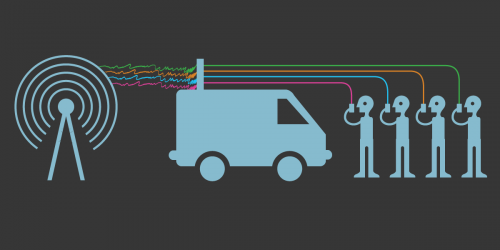In the first ruling of its kind, a federal magistrate judge has held that the government must obtain a search warrant to collect the content of a telephone call, even when that content is dialed digits like bank account numbers, social security numbers or prescription refills. The decision from Magistrate Judge Smith in Houston closely follows the reasoning outlined in an amicus brief from the Electronic Frontier Foundation (EFF) and the Center for Democracy and Technology (CDT).
The Texas judge invited EFF to file the brief in response to requests from government investigators to use a "pen register" or "trap and trace device" to collect all numbers dialed on a phone keypad after a call has been connected. Investigators can typically get "pen/trap" orders under a legal standard much lower than the "probable cause" required for a typical phone-tapping warrant, because only phone numbers used to connect the call are collected, not the content of the phone call itself.
However, the judge found that when it comes to dialed numbers that represent call content, federal statutes require that investigators either get a probable cause warrant or use filtering technology to ensure that only dialed phone numbers are collected. In fact, according to the court, "Congress ordered law enforcement to do just that, 12 years ago, yet the court notes that the government's current practice is to collect all dialed digits without using any filtering technology."
"Judge Smith correctly recognized that the privacy protections for your phone calls shouldn't depend on whether the information you are communicating is spoken or dialed," said EFF Staff Attorney Kevin Bankston. "Whether it's your bank account number, your social security number, your prescription refill, or even your vote for American Idol, the government has to get a search warrant to tap the numbers you dial after your call has been connected. Allowing such taps without a warrant not only violates longstanding statutes, as the court found here, but the Constitution itself--which makes it all the more troubling that government investigators have been collecting such information without a warrant for years."
In the same opinion, Judge Smith also rejected a new government request to track the location of someone's cell phone without a warrant. EFF has briefed two other courts on the cell-tracking issue, which has been a continuing controversy since Judge Smith and another judge in New York first published decisions on the issue last fall. Those decisions revealed that government investigators had routinely been tracking cell phones for years without getting warrants based on frivolous legal arguments.
For the judge's decision:
http://www.eff.org/legal/cases/Pen_Trap/Smith_dialed_digit_decision.pdf
For EFF and CDT's amicus brief:
http://www.eff.org/legal/cases/Pen_Trap/EFF-and-CDT-Amicus.pdf
Contact:
Kevin Bankston
Staff Attorney
Electronic Frontier Foundation
bankston@eff.org








